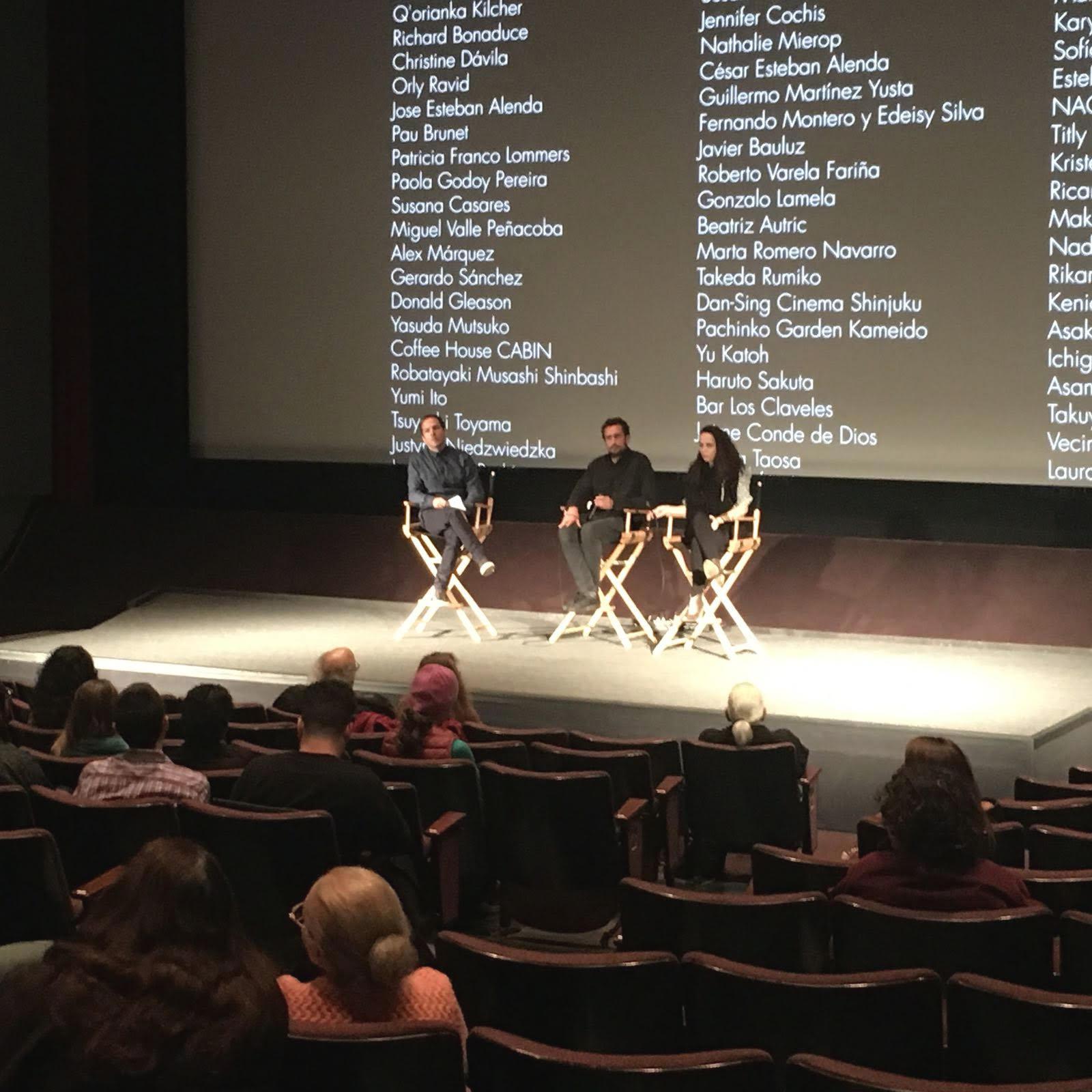Underrepresented Spanish-speaking women share perspectives in film festival
This year’s annual Latin American, Latinx and Iberian Film Festival will feature films directed by women from Spain, Latin America and Mexico. The festival was founded in 2012 by assistant adjunct professor Adrián Collado and was hosted by UCLA’s Department of Spanish and Portuguese. (Courtesy of Adrián Collado)
"Latin American, Latinx and Iberian Film Festival."
Today - Thursday
UCLA
Free
By Breanna Andrews
April 14, 2019 9:49 p.m.
Immigration, sexuality and maternity will be explored from a woman’s point of view in this year’s annual Latin American, Latinx and Iberian Film Festival.
Founded in 2012 by assistant adjunct professor Adrián Collado and hosted by UCLA’s Department of Spanish and Portuguese, this year’s iteration of the annual festival will run from Monday through Thursday featuring films directed by women from Spain, Latin America and Mexico. Some screenings will be accompanied by live Q&As with cast and crew. One of the festival’s goals is to provide a platform for underrepresented women in Spanish- and Portuguese-speaking countries to share their perspectives on social issues, said Spanish and Portuguese professor Elizabeth Warren.
“We are hoping that since we are having Q&As with a lot of the directors, we’ll have conversations about the visibility of women in the industry and their experiences as a woman filmmaker in different countries,” Warren said.
[RELATED: Film archive series to shed light on Hollywood’s unrecognized female directors]
Graduate student Esther Claudio, who helped find funding for the festival, said the festival committee aims to highlight intersectional social justice films. For example, Thursday’s screening of “Carmen y Lola” follows a romance between two young girls and their lives in the traditional Roma community. Roma people are a marginalized group in Spain, and Claudio said it was interesting to see how Roma and LGBTQ identities intersect. The festival is a way to foster discussion about these experiences and view Latin-American and Spanish countries in a nonstereotypical way, Claudio said.
“It’s not the stereotypical dressy Brazil Carnival with sexualized women, … or with Spain, ‘Oh, yeah, it’s all flamenco and bullfighting,'” Claudio said. “It’s talking about the topics that we are all interested in – like sexuality, gender, immigration – and seeing how we are all dealing with these topics.”
In previous years, only Latin-American, Portuguese and Spanish films were showcased. For the first time in the festival’s history, however, Collado said they are including a film created in the United States in order to be more inclusive. Since there are so many Latin-American countries represented in the United States, Warren said the film can be considered part of the Spanish-speaking world. The festival will kick off with a screening of “Real Women Have Curves” along with a Q&A with director Patricia Cardoso. This is one of the first films directed by a Latina that received commercial success, setting a precedent for other Latina directors, Warren said.
“We share tradition, history and language with the Chicano and the Latino community here in the United States. We felt that it would be a good idea to bring in or to add that element to the festival. (It is) not only the Latin-American, Spanish and Portuguese festival, but also Latinx,” Collado said.
[RELATED: Edit-a-thon aims to give recognition to more women, arts on Wikipedia]
By showing films from the Latin-American, Spanish and Chicano communities, Collado said the festival shows they share similar difficulties. The films open up discussions about social justice issues and intersectionality and how each culture deals with them, Claudio said. In previous years, graduate students were the main audiences present but Collado wants to make these films appeal to a larger audience. In the future, Collado hopes more people, especially undergraduate students, will be involved in deciding what films to select and in organizing the festival.
“We want to show them that there are films in Spanish that are interesting … it’s trying to expand the canon of cinema as well,” Collado said. “Here in the States, there are not so many Chicano stories in Hollywood in general or in mainstream cinema, so in a way it’s also giving the opportunity and space to remind everyone there are these stories.”
